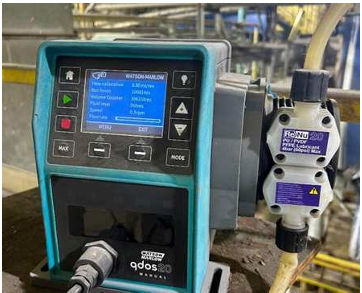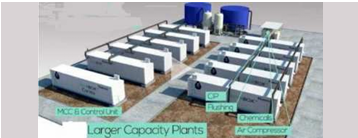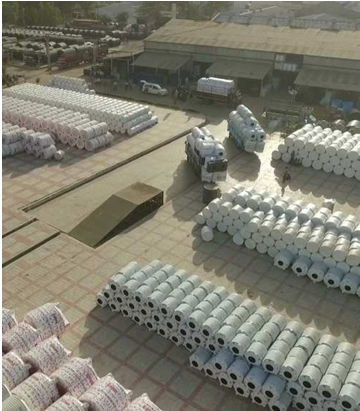By Sanjeev Sirsi, Head – Municipal Business – INDO Region, Water Utility, Grundfos India
The Indian wastewater treatment sector was estimated to be worth $2.4 billion in 2019 and is projected to be worth$4.3 billion by 2025 according to Mr. Amitabh Kant, CEO, NITI Aayog. This phenomenon stems from the rising demand for municipal water and increasing wastewater generated, which is estimated to reach over 120,000 MLD by 2051 as per the Central Pollution Control Board (CPCB). The reuse potential of the wastewater is humongous. It is said that if 80% of the untreated wastewater from the country’s 110 most populous cities is reused, 75% of the projected industrial water demand can be met by 2025. The focus should therefore be on upgrading the current wastewater management systems across the country with new and innovative technologies. The key necessity of the wastewater systems to be reliable and effective can only be met with intelligent and sustainable solutions.
Advanced pumping systems strengthening reliability Intelligent pumps are an integral part of refining the country’s wastewater management sector. With implementation of digital technologies such as Artificial Intelligence (AI) and Internet of Things (IoT) in pumping systems, the treatment of wastewater will see a huge change. These systems can adapt their functioning in real time by analyzing and reading data of the processes. The systems hence are less prone to downtime, saving energy, maintenance, and lifecycle costs. Intelligent pumps or E-Pumps enabled with energy
efficient motors provide massive energy savings. Specifically, pumps with IE5 rated motors are said to incorporate intelligent and smart technologies providing to the current need of climate positive systems. These pumps also provide high filtration potential aiding the much essential process of wastewater management. For instance, in the North of Daxing city, in China, lies a mountain of rubbish from the residents that seeps to the bottom of the landfill pit, where it is collected into a water leachate accumulation pond for treatment. The Daxing treatment plant implemented a range of Grundfos industrial and. water treatment pumps – from heavy-duty, multistage CRN pumps to NKG and NBG endsuction pumps to BM high-pressure booster modules. This resulted in the treated water being discharged directly while some of the water is even reused. With the rising need in automation of the systems, also comes the need for advanced maintenance. With technologies such as Grundfos Remote Management (GRM), these systems can be monitored and operated through an internetbased system. This goes on to provide extra security to the lives of employees at the water treatment plants and ease of running day to day operations in a hazardous environment. For instance, residents in a neighborhood in Hobro, Denmark, were plagued by the smell of hydrogen sulphide that came from manholes outside the city where a pumping main transports wastewater. The production of hydrogen sulphide in the pressurized pipes was so significant that concentrations of up to 500 ppm were measured in the manholes. GRM was installed in this system to help cut down the production of this gas. GRM receives signals from a gas phase logger installed in a manhole. Based on the data received, the solution automatically calculates the correct dosing amount of iron sulphate. GRM warns operators in case of problems, and the staff can access the internet-based system at any time to view operational status and make any necessary adjustments. After installing the Grundfos solution, the smell problem is completely gone. The hydrogen sulphide sensor in Hobro indicated zero.
Shifting trends in wastewater sector
With the enhanced implementation of AI and IoT, huge amounts of data are now available to analyze the wastewater sector. With the implementation of advanced technologies, the potential to reuse treated wastewater will also need to be of high priority in the years to come. Integrating systems that function by analyzing data in real time, will enable the wastewater segment to perform predictive and remote maintenance of infrastructure, thereby reducing downtime and improving reliability. Implementing digital solutions can enable the segment to optimally manageproper treatment and well as reuse and discharge of wastewater.






